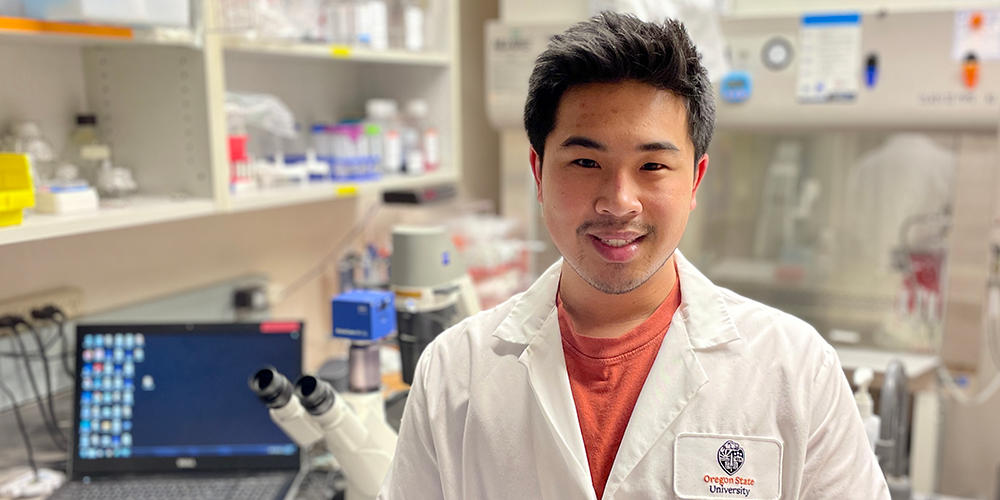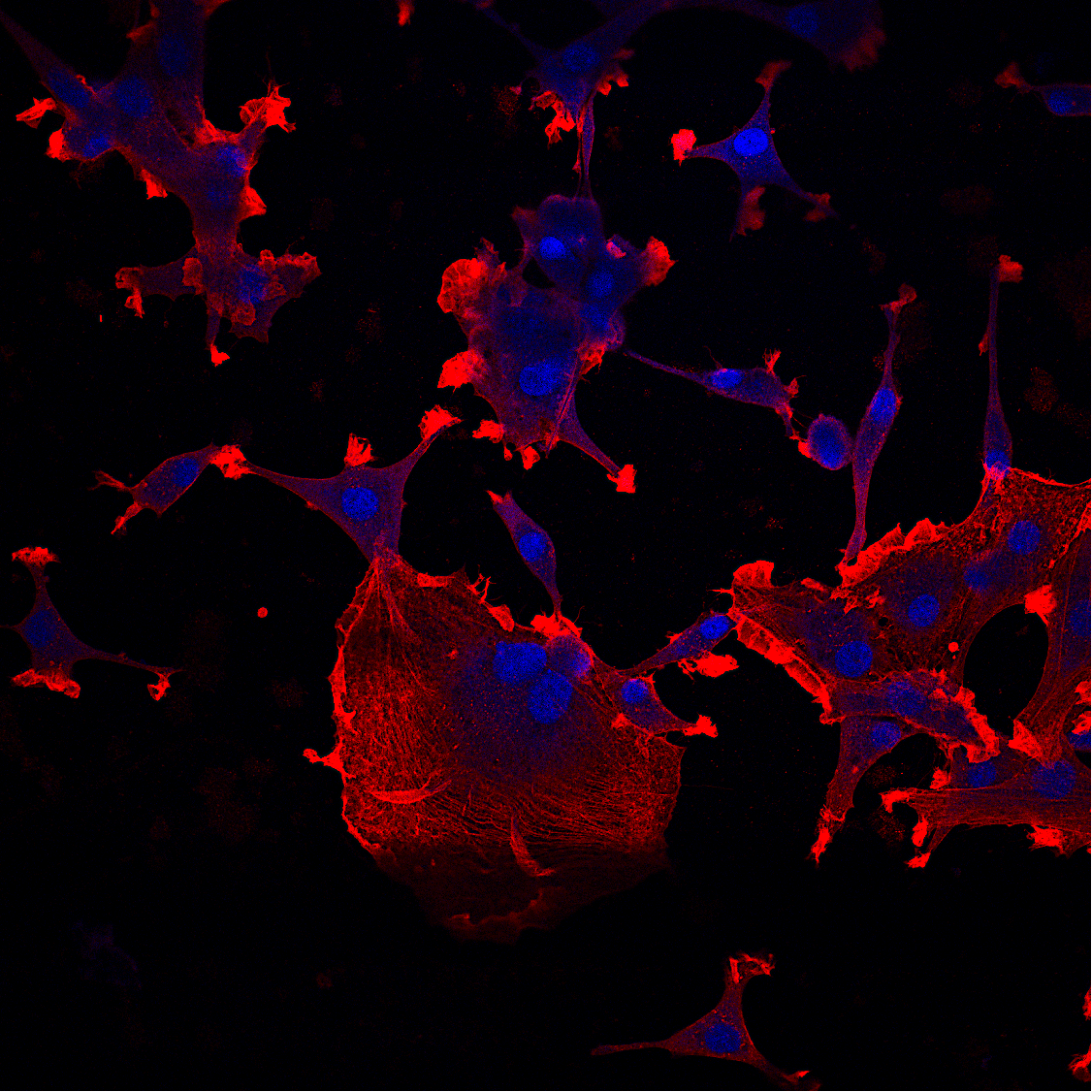Targeting nitrated proteins could lead to new cancer drugs
Glioblastoma multiforme is a type of cancer that develops in the brain. Aggressive and difficult to treat, glioblastoma tumors respond to few drugs, and most patients are treated with methods developed about 20 years ago. Kyle Nguyen, a second-year Ph.D. student in Maria Franco’s laboratory at Oregon State University, has been looking for a new way to target these tumors. He will present his work on Friday, 3–3:15 p.m. EDT, at the 2021 ASBMB Annual Meeting.

In broad terms, the Franco lab is interested in the role of oxidative stress in diseases of the nervous system. Oxidative stress is a chemical imbalance inside cells that leads to an accumulation of oxidants that damage healthy cells. It has been linked to aging and various diseases, including cancer. The lab studies the role of oxidants in the development and growth of tumors of the nervous system.

Peroxynitrite is the most powerful oxidant produced in cancer cells and in cells associated with other diseases. When peroxynitrite reacts with proteins it causes oxidative changes that can negatively affect the way the proteins work in the cells. “As far as we know, these are permanent chemical changes,” Nguyen said.
The lab is interested in tyrosine nitration, one of the changes mediated by peroxynitrite. Tyrosine nitration is virtually undetectable in normal tissues, Nguyen explained, so drugs that target nitrated proteins would not affect healthy cells. His project looked at tyrosine nitration of a protein called heat shock protein 90, or Hsp90. Nitrated Hsp90 promotes the survival of tumor cells, and this role is mediated by nitration of tyrosine residues within this protein.
In his work, Nguyen shows that tyrosine nitration supports the survival and migration of glioblastoma cells and thus is important for tumor development, and that nitrated Hsp90 may play more than one role in these tumors. Non-tumor cells do not have nitrated Hsp90 and tumor cells do, so targeting nitrated Hsp90 or other nitrated proteins could selectively kill tumor cells with few side effects.
Enjoy reading ASBMB Today?
Become a member to receive the print edition four times a year and the digital edition monthly.
Learn moreGet the latest from ASBMB Today
Enter your email address, and we’ll send you a weekly email with recent articles, interviews and more.
Latest in Science
Science highlights or most popular articles

From humble beginnings to unlocking lysosomal secrets
Monther Abu–Remaileh will receive the ASBMB’s 2026 Walter A. Shaw Young Investigator Award in Lipid Research at the ASBMB Annual Meeting, March 7-10 in Washington, D.C.

Chemistry meets biology to thwart parasites
Margaret Phillips will receive the Alice and C. C. Wang Award in Molecular Parasitology at the ASBMB Annual Meeting, March 7-10 in Washington, D.C.

ASBMB announces 2026 JBC/Tabor awardees
The seven awardees are first authors of outstanding papers published in 2025 in the Journal of Biological Chemistry.

Missing lipid shrinks heart and lowers exercise capacity
Researchers uncovered the essential role of PLAAT1 in maintaining heart cardiolipin, mitochondrial function and energy metabolism, linking this enzyme to exercise capacity and potential cardiovascular disease pathways.

Decoding how bacteria flip host’s molecular switches
Kim Orth will receive the Earl and Thressa Stadtman Distinguished Scientists Award at the ASBMB Annual Meeting, March 7–10, just outside of Washington, D.C.

Defining JNKs: Targets for drug discovery
Roger Davis will receive the Bert and Natalie Vallee Award in Biomedical Science at the ASBMB Annual Meeting, March 7–10, just outside of Washington, D.C.

